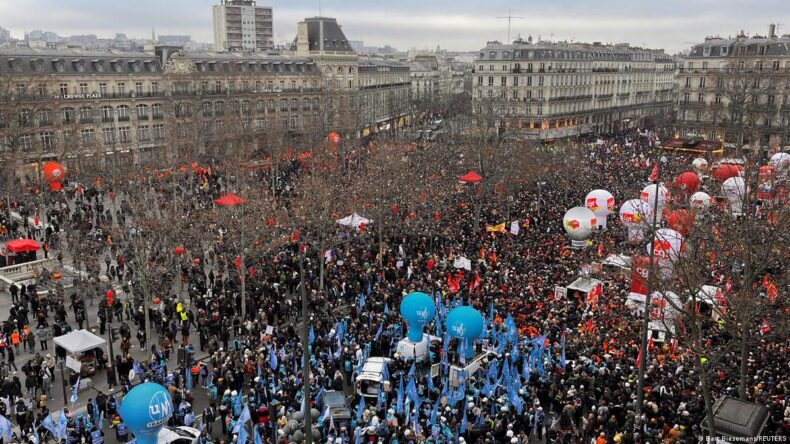The citizens of France took to the streets after the French President, Emmanuel Macron, passed a bill regarding the retirement age.

The bill was passed after the French Prime Minister, Elisabeth Borne, invoked article 49:3 which allows the government to decide without a vote in the assembly. This was met with outrage from the opposition who were set to vote on the bill a few minutes later. The left-wing legislators were seen chanting the National Anthem of France and banging the tables. While the far-right opposition has declared that they will file a no-confidence motion against the ruling government.
Thousands of protestors converged on Place de la Concorde, a major public square in Paris. The protests became violent over time as the police used tear gas and water cannons to clear out the demonstrators from heading to Palais Bourbon, the lower house of the French Parliament. The protestors in response hurled stones at the police and set wooden fencing on fire.
Apart from Paris, some of the other cities that were a part of the protests in France are Nice, Nantes, Grenoble, Rouen, and Dijon.
What is the pension reform about?
According to the altered bill, the retirement age will increase by three months every year until 2030, thereby increasing the period from 62 to 64 slowly. Also, starting in 2027, French workers will have to pay into the social security system for 43 years instead of 42 to receive a full pension.

A guaranteed minimum pension income of at least 85% of the net minimum wage, or roughly 1,200 euros per month at the current rate, will be provided by the new reform. Apart from this, those with a low income will be adjusted to inflation post-one years of retirement.
This bill will cause concern for the low-skilled workers who start their jobs at a relatively young age and participate in physically draining jobs. Currently, the life expectancy in France is 82 years and the citizens would spend an average of 18 years in retirement according to the pension reform.
Macron’s tenure as the President –
Emmanuel Macron was elected to Office in 2017 making him the youngest-ever president of France at the age of 39. In 2022, he was re-elected for a second term as president.

During his presidency, During his presidency, Macron has supervised numerous improvements to labor legislation, taxation, and pensions along with pursuing a shift to renewable energy sources. His rivals dubbed him as “president of the affluent,” and the early years of his presidency were marked by escalating domestic reform protests and calls for his resignation, which culminated in 2018–2019 with the yellow vest protests and the pension reform strike.
From the beginning of COVID-19 in 2020, he oversaw the vaccine campaign in France. He signed bilateral agreements with Germany and Italy and advocated for changes to the European Union (EU). In the fight against the Islamic State, he resumed Operation Chammal, and he joined the global outcry against the Russian invasion of Ukraine in 2022.












